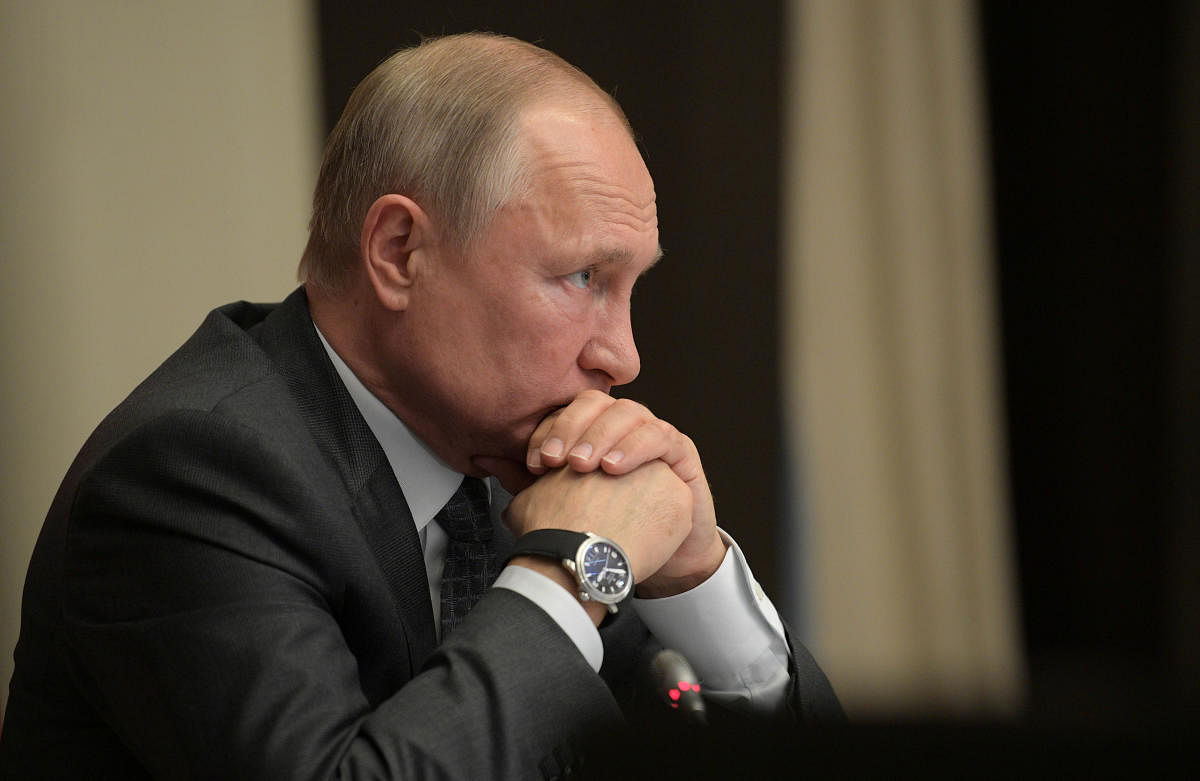
President Vladimir Putin opens Russia's first ever summit with dozens of African leaders on Wednesday as Moscow seeks to vie for influence on the continent with the West and China.
The Russian leader called the two-day event "unprecedented" as the Black Sea resort of Sochi prepared to host over 3,000 business representatives and other delegates.
Putin contrasted Russia's approach to cooperation with Africa to what he called the West's desire to "pressure, frighten and blackmail" African leaders in order to "reap superprofits".
Russia is "preparing and carrying out investment projects worth billions of dollars" in Africa, Putin said in an interview with TASS news agency.
For Putin, the summit is a chance to revive Soviet-era relationships and build new alliances, bolstering Russia's economy following five years of Western sanctions.
He will also look to once again burnish his credentials as a top global player -- the summit will take place after Putin discusses the Syrian crisis with Turkish President Recep Tayyip Erdogan in Sochi on Tuesday.
Moscow was a crucial player on the continent in the Soviet era, backing independence movements and training a generation of African leaders.
But Moscow's ties with Africa declined with the collapse of the Soviet Union in 1991 and in recent years China has emerged as a top foreign power on the continent, forcing Russia to play catch-up.
In many ways the Kremlin is borrowing from China's playbook.
To expand its influence, Beijing in 2000 launched the Forum on China-Africa Cooperation and has poured tens of billions of dollars into the continent.
Russia cannot match China's economic might but, like Beijing, it is prepared to support African leaders with controversial rights records in exchange for access to the continent's riches.
Russia "is ready not to 'redistribute' the continent's wealth, but to compete for cooperating with Africa", Putin said.
The leaders of former Soviet client states such as Angola and Ethiopia will be at the summit as well as representatives of countries where Moscow's engagement has been traditionally low, like Nigeria and Ghana.
Putin, who has been in power for the past 20 years, has preferred to host African leaders at home.
The only country in sub-Saharan Africa Putin has been to as president is South Africa, which he has visited three times since 2006.
Russia's business footprint in Africa is relatively small, about the same size as that of Turkey, which has also been looking to expand its influence on the continent.
Overall Russian trade with Africa stood at about $20 billion in 2018, 10 times less than with China.
Much of that was weapons sales.
Between 2014 and 2018 Russia accounted for 49 percent of arms imports to North Africa and 28 percent of arms exports to sub-Saharan Africa, according to the Stockholm International Peace Research Institute.
Now Moscow wants to "concentrate its efforts on areas where it has a competitive advantage" -- nuclear energy and hydrocarbons in addition to weapons, said Yevgeny Korendyasov, an expert at Moscow's Institute for African Studies and former ambassador in Burkina Faso and Mali.
Africa is also an important source of minerals that Russia badly needs including manganese and chromium, Korendyasov added.
In recent years, Moscow has struck a series of military agreements with African countries and thousands of private Russian security contractors are reported to be working on the continent.
In Libya, Russian contractors are reported to be fighting on the side of military commander Khalifa Haftar and in Mozambique they helped the government fight jihadists.
Still, analysts say Russia will not be able to compete with China and the West in Africa any time soon.
"Russia is not the Soviet Union. It lacks the resources, the ideology, and the appeal of its predecessor," said Paul Stronski, a senior fellow at the Carnegie Endowment for International Peace.
At the same time Russia should not be dismissed as a minor player, Stronski, a former US State Department analyst, said in a report this month.
"Moscow boasts an agile and skilled diplomatic establishment and lacks ethical constraints in pursuit of its objectives."